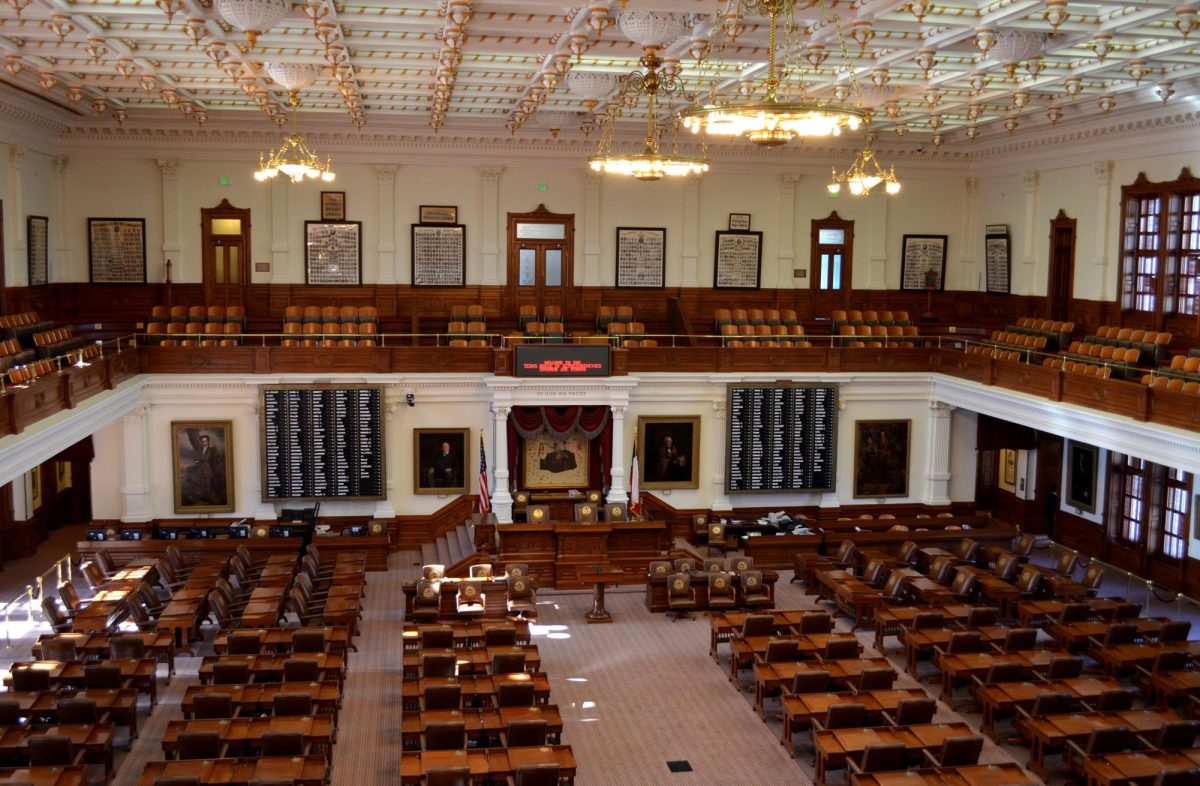Mere months into the school year, DISD teacher and union activist Rosemary Curts’ school has run out of money for printer paper.
Texas is projected to acquire a record breaking $32 billion budget surplus from the 2022-2023 budget. This sum can be portioned out however the state legislature sees fit, and has sparked a fight over public and private education funding.
In a message sent to district families by the HPISD Board of Trustees on Oct. 6, the board explained that despite the surplus, Texas lawmakers have not provided any meaningful increase in per-student funding for public schools. While the state may have ended with a surplus, many school districts are forced into debt in order to keep their lights on.
On Oct. 9, Abbott followed through on his threats to call the Texas legislature into a special session until legislation passed to fund school vouchers. School vouchers are funds given to individuals who wish to send their children to private schools instead of public schools.
“Greg Abbott is trying to hold teacher raises or school funding hostage until we pass vouchers,” Curts said. “But that’s not a deal that we’re ever going to be willing to make.”
Many Democrats, independents and rural Republicans who find private schools inaccessible have the same concerns as Curts, and are currently standing together against passing any voucher program in the special session.
“We have a finite amount of money funding education,” Curts said. “If you take some of it away for vouchers, then there is less left in the pot for the public schools. That’s obvious, that’s just math.”
Julia Landrum’s older son is at private school Cisterian Preparatory and her younger son is at Highland Park Middle School.
“Having [one son] in a private school versus having [one] in Highland Park, I do feel like the [older one] gets a ton more personal attention,” Landrum said.
Landrum believes that teachers at Cisterian are more invested in students’ growth, as opposed to public schools with a larger class size, which struggle with personalized instruction in both education and extracurriculars.
“My younger son is on the [HPMS] football team and for probably the whole season so far, he’s not really playing even though he’s on the team,” Landrum said. “That’s concerning to me because sports aren’t about winning. Sports from my perspective should be about helping them with interpersonal skills and working together as a team.”
However, even though Landrum agrees that private schools have their own unique strengths in education approach, she still believes that money should be directed towards underfunded public schools.
“I am a product of a public school teacher,” Landrum said. “Every student, regardless of their parents’ income or their financial situation deserves a good education. The reality is that funding the schools does contribute to that.”
Rural Republicans in Texas have similar stances, and are also holding ranks with Democrats against school vouchers.
A school cannot exist if it lacks funding or students. However, rural schools, unlike suburban and urban schools, risk losing both factors in dangerous numbers to a voucher program.
“[Rural] communities [are] where the public school is the cornerstone of the community and they basically don’t have enough population to sustain a private school,” Curts’ said.
Though neither rural nor small, Highland Park’s funding also stands vulnerable to a voucher program due to its specific demographics. Abbott’s ideal voucher program would offer $8000 to families who wished to send their child to private school.
The voucher covers only a small portion of the fees for a private school tuition. Curts argues that the small change in tuition will not significantly aid lower income students in attending private schools.
“The parents who already can afford [private schools] will get the vouchers, even though they could afford to pay the tuition,” Curts said. “So it’s giving a bunch of money to people who don’t need it.”
As a district with an affluent community, school vouchers could pose an additional risk to HPISD. Currently, the district schools only receive a fraction of the tax revenue raised from property taxes due to what is commonly referred to as the “Robin Hood Plan.”
The program requires that any tax revenue over the bare allotted amount for each student is taken out of the HPISD funds and sent to other districts. The Parent Teacher Association, or the PTA, is responsible for raising funding to replace that which was redistributed to the other school districts.
“We have a gift committee that is composed of our PTA board members, and that committee works with Mr Gilbert who in turn, works with the teachers and staff to decide on [where the funding goes].”
Through the committee’s funding decisions, the school is able to raise money for classroom furniture, technology, and other classroom supplies.
“In the Scots Challenge we proudly raised over a million dollars. That was from the generosity and support of our families and corporate sponsors,” Neely Thrash, financial vice president of the PTA said. “We gifted $1,198,882 [to the school].”
Abbott is expected to call a fourth special session in the next few weeks to have representatives decide on the school vouchers bill. Billions of dollars are up for grabs and Abbott’s plans may ensure that they are directed to private schools. However, public schools employees will continue to express their discontent with the bill.
“We’re willing to forgo the raises and forgo the funding this round if we can just keep out vouchers once and for all,” Curts said. “It’s too dangerous to allow.”




